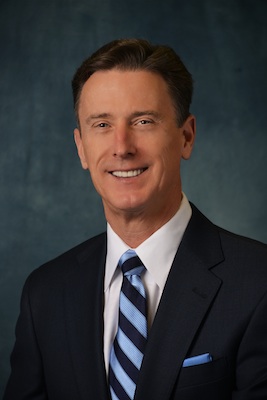Let’s Look at the Issues

It took 64 years for the Friendship Nine to get justice.
With February designated as Black History Month it is an appropriate time to look back on the heroic actions taken by these nine brave men. The Friendship Nine were made to pay for their “crime” of sitting at a “whites only” lunch counter in Rock Hill, North Carolina on January 31, 1961.
The scene of this “crime” was a McCrory’s luncheonette located on Rock Hill’s Main Street. Students from nearby Friendship Junior College were picketing the place in a protest against separate lunch counters for blacks and whites. Ten of the students, all of them young men, entered the luncheonette, sat at the counter and ordered burgers, soft drinks and the like. They were refused service and ordered to leave. They refused. And that’s when the cops came.
The following day all 10 students were convicted of trespassing and disturbing the peace—“justice” was swift in those days—and they were each sentenced to a choice of paying a $100 fine or spending 30 days in jail. One student paid the fine and the nine others chose to do the jail time to draw attention to the evils of segregation. This led to a “jail, no bail” chant across the South as others were inspired to engage in non-violent actions of civil disobedience to fight the Jim Crowe laws that were prevalent across that region. The nine Friendship College students who dared to protest segregation at the Rock Hill McCrory’s and refused to pay the $100 fines were sentenced to 30 days of hard labor at a prison farm, a penal institution more commonly known as a chain gang. Twice during their time on the chain gang the students refused work orders. Officials responded to these mini-strikes by putting the nine on bread and water.
While the students served their time on the chain gang, the protests continued in Rock Hill and across the South. Now, however, the protests were not only against segregation but also against the chain gang system. The Civil Rights Act of 1964 made segregation illegal. Chain gangs were out of practice by the end of the decade.
As the years passed, the members of the Friendship Nine finished their schooling and went into the working world. In 2007 Rock Hill officials erected an historic marker memorializing what had occurred in their city 56 years earlier and saluting the Friendship Nine for their non-violent efforts to end segregation. Last week, on the anniversary of their courageous stance, seven of the eight living members of the Friendship Nine returned to the Rock Hill courthouse, where Judge John C. Hayes threw out their convictions for trespassing and disturbing the peace. The Judge said, “We cannot rewrite history, but we can right history.”
Finally, after 64 years, the Friendship Nine received justice. We should add that the members of the Friendship Nine were represented before Judge John C. Hayes last week by Ernest A. Finney, Jr., the same attorney who had defended them in 1961 and who himself had become a judge. In fact, Finney became the first African-American Chief Justice of the South Carolina Supreme Court in over 100 years.
The members of the Friendship Nine were Robert McCullough, who passed away eight years ago, John Gaines, Thomas Gaither, Clarence Graham, Willie Thomas Massey, Willie McCleod, James Wells, David Williamson Jr. and Mack Workman. They are heroes, and it is about time that they were exonerated for their “crimes” that were actually acts of courage that awakened our country’s collective conscience and led to positive change.
Several weeks ago, Hotel Voice honored the memory of the Reverend Martin Luther king, Jr., noting our own Union’s support for him and the entire civil rights movement. With February being Black History Month it is appropriate for us to appreciate the standard bearers of that movement such as the Friendship Nine and to take deep pride in the historic links between our Union and the struggle for fairness and equality.
But as we also said several weeks ago, the fight for civil rights continues. Today, women are still paid less than men, gays are still prohibited from marrying in a number of states, 12 million undocumented workers and many children of immigrants who have known no other country but the U.S. live under a cloud of legal uncertainty, and countless U.S. workers have been subjected to illegal harassment, surveillance and even the loss of employment simply for wanting to belong to a union. These, too, are all civil rights issues! That’s why all of us should remember that the greatest tribute we can pay to the memory of the Reverend Martin Luther King, Jr. and to other pioneers like the Friendship Nine is to continue the fight for equal rights for all.


